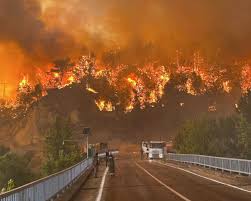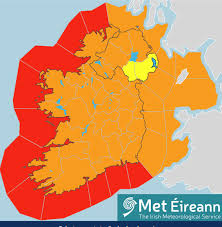Recent Turkey Wildfires: Causes, Impact, and Recovery Efforts

Introduction
The recent wildfires that ravaged Turkey have highlighted the devastating impact of climate change and the increasing frequency of natural disasters across the globe. In the summer of 2023, Turkey faced severe wildfires primarily in its southern regions, threatening ecosystems, wildlife, and local communities. These fires caught the world’s attention, prompting discussions about environmental policy and disaster preparedness.
Details of the Wildfires
Beginning in July 2023, a combination of extreme heat, drought conditions, and strong winds contributed to the rapid spread of wildfires in Turkey’s Antalya and Muğla provinces. According to the Turkish Ministry of Agriculture and Forestry, over 25,000 hectares of land were engulfed in flames, with several towns and villages being evacuated as the fire reached dangerously close to residential areas.
The wildfires were exacerbated by a record-high temperature exceeding 40°C (104°F) in some areas, creating the perfect conditions for fires to ignite and spread. Firefighting crews, supported by both national and international efforts, battled the blazes through challenging terrain and amidst ongoing heatwaves. However, the response was hindered by inadequate resources and logistical issues, which raised concerns about Turkey’s preparedness for such disasters.
Environmental and Economic Impact
The ecological ramifications of the wildfires have been significant. Forests, which serve as vital habitats for various species, were lost at an alarming rate, leading to long-term consequences for biodiversity. Notably, several endangered species faced renewed threats due to habitat destruction. Furthermore, the fires have impacted tourism, a critical sector for Turkey’s economy, particularly in the affected regions. Local businesses saw a sharp decline in visitors, affecting thousands of livelihoods.
Response and Recovery
In response to the crisis, the Turkish government announced a series of recovery initiatives aimed at providing support to affected communities, including financial aid, housing assistance, and ecological restoration programs. Environment Minister Murat Kurum stated that the government is committed to restoring the damaged ecosystems and enhancing firefighting capabilities to prevent future occurrences.
Conclusion
The wildfires in Turkey are a grim reminder of the urgent need for comprehensive environmental policies and disaster management strategies to tackle climate change. As Turkey embarks on its recovery journey, it faces the task of rebuilding not only the physical structures but also the trust and resilience of its communities. Moving forward, the focus must be on sustainable practices and preparation to combat the growing threat of wildfires and other climate-related disasters.








